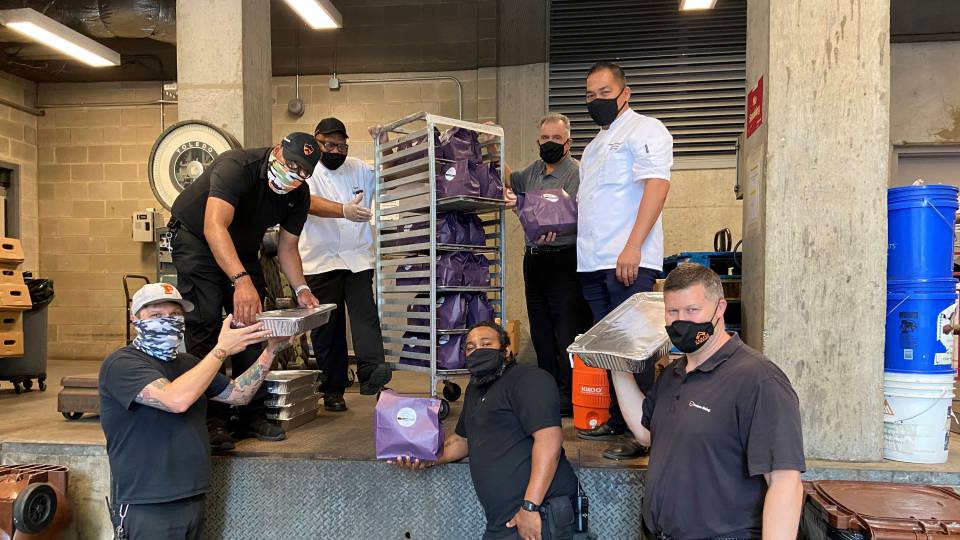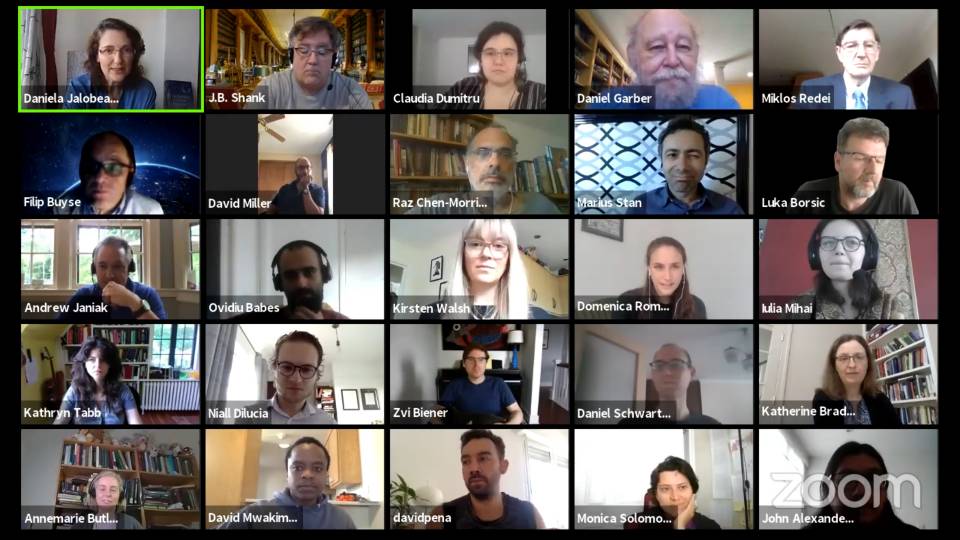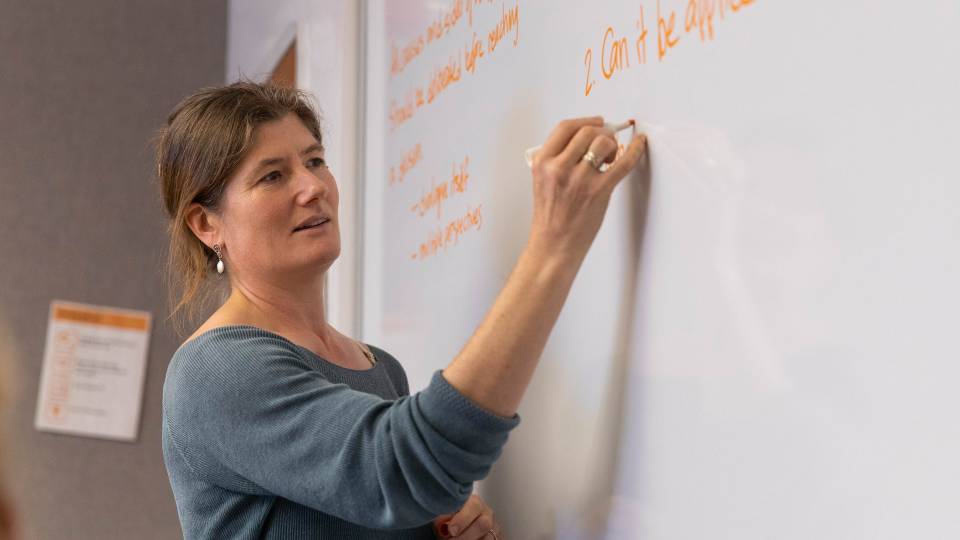As part of Princeton’s ongoing efforts to support New Jersey and our neighboring communities, the University has made a number of donations to state and local partners that are working to help protect health care workers and emergency responders amid the COVID-19 pandemic. The University also is helping to address hunger and local food insecurity in a time of economic uncertainty, and will continue to work with the community and the state to find ways to help and support this fight over the long term.
Over the past few weeks, the University has been identifying and delivering thousands of pieces of personal protection equipment (PPE) — including gloves, masks, respirators, surgical gowns and other items — to the state Office of Emergency Management for distribution to hospitals, health centers, other patient-care operations and first responders across New Jersey. In addition, the University has delivered PPE to support emergency services in the Municipality of Princeton and West Windsor Township.
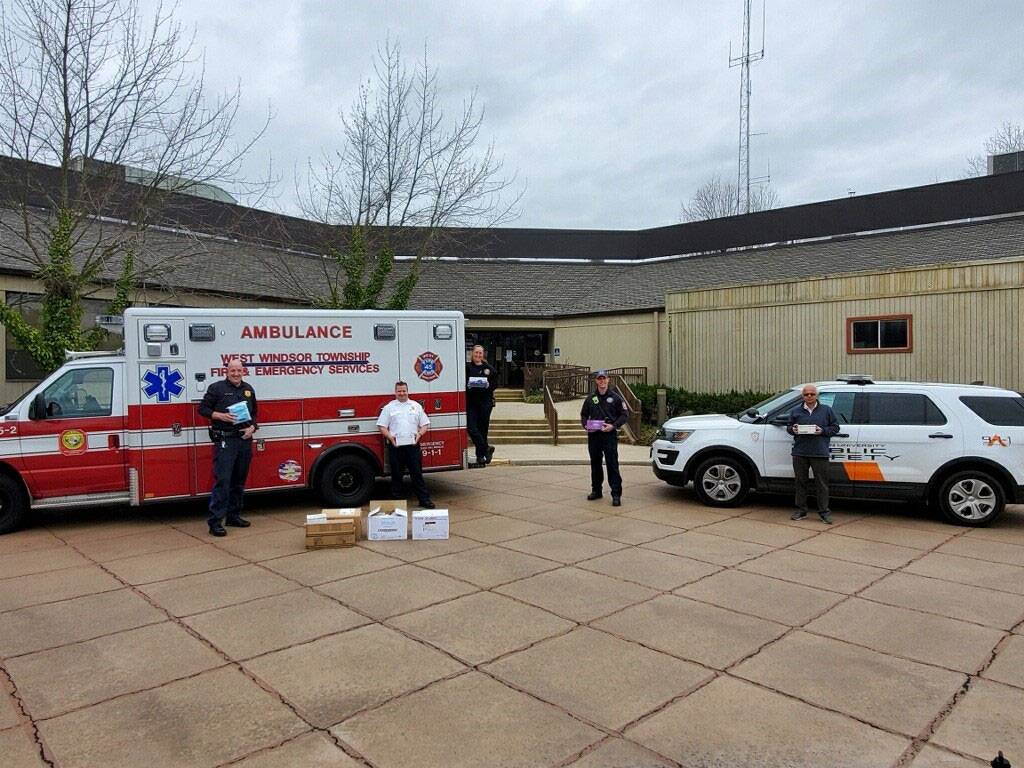
The West Windsor Township Office of Emergency Management and Mayor Hemant Marathe thank staff from the University's Department of Public Safety for a donation of personal protective equipment.
Community blood drive. Princeton University is pleased to support the American Red Cross by holding several community blood drives at the Fields Center for Equality and Cultural Understanding, 58 Prospect Ave. The first blood drive will take place between 9 a.m. and 3 p.m. on Thursday, April 16 and Friday, April 17, with additional dates in May and July. Please note appointments are required to participate. Blood drives are critical now more than ever and we hope you will consider donating.
For more information and to book an appointment, visit the Office of Community and Regional Affairs website.
Note: The Red Cross has implemented added precautions to ensure blood drives are safe for donors and staff. To learn more about these safety measures visit redcrossblood.org.
The University began organizing efforts to centralize donations of PPE from labs and other sources on campus several weeks ago, and Governor Murphy later issued a call to universities, corporations and others asking for materials that they could donate.
All labs at the University were asked to review their stock of personal protective equipment and offer whatever they could for donation. Labs across many disciplines use PPE in the normal course of their operation to ensure the safety of faculty, students and staff. Due to COVID-19, all non-essential research on campus has been suspended. University staff collected materials that had been allocated for donation in labs and organized them for delivery. The Office of Public Affairs has facilitated PPE donations to the state Office of Emergency Management, and the Office of Community and Regional Affairs has coordinated donations to the University's local partners.
The University has retained PPE and other materials needed by University Health Services, Public Safety, Facilities, University Services, Environmental Health and Safety and others who interact with students in isolation or quarantine, or who need to enter spaces where students are in isolation or quarantine for repairs or maintenance.

Sean Farrell, senior workplace safety specialist in Environmental Health and Safety, sorts through boxes of personal protective equipment.
In response to the significant public health needs from the COVID-19 pandemic, the University has convened a group to evaluate, support and assist with non-research volunteer projects primarily focused on production, manufacturing and donation. Information is available on the COVID-19 Response Special Activities and Resources Group website.
To help address food security, the University made a $25,000 contribution to Send Hunger Packing Princeton to support the nonprofit group’s collaboration with the Princeton Public Schools. This collaboration, which provides meals at home for the district’s 500 students who participate in the free/reduced price lunch program, is being expanded during the crisis. Many of the students rely on food they receive at school, but the district’s schools are providing remote instruction through at least April 30. As part of the collaboration, the district is helping fill the weekday food gap while Send Hunger Packing Princeton provides weekend meals for the children.
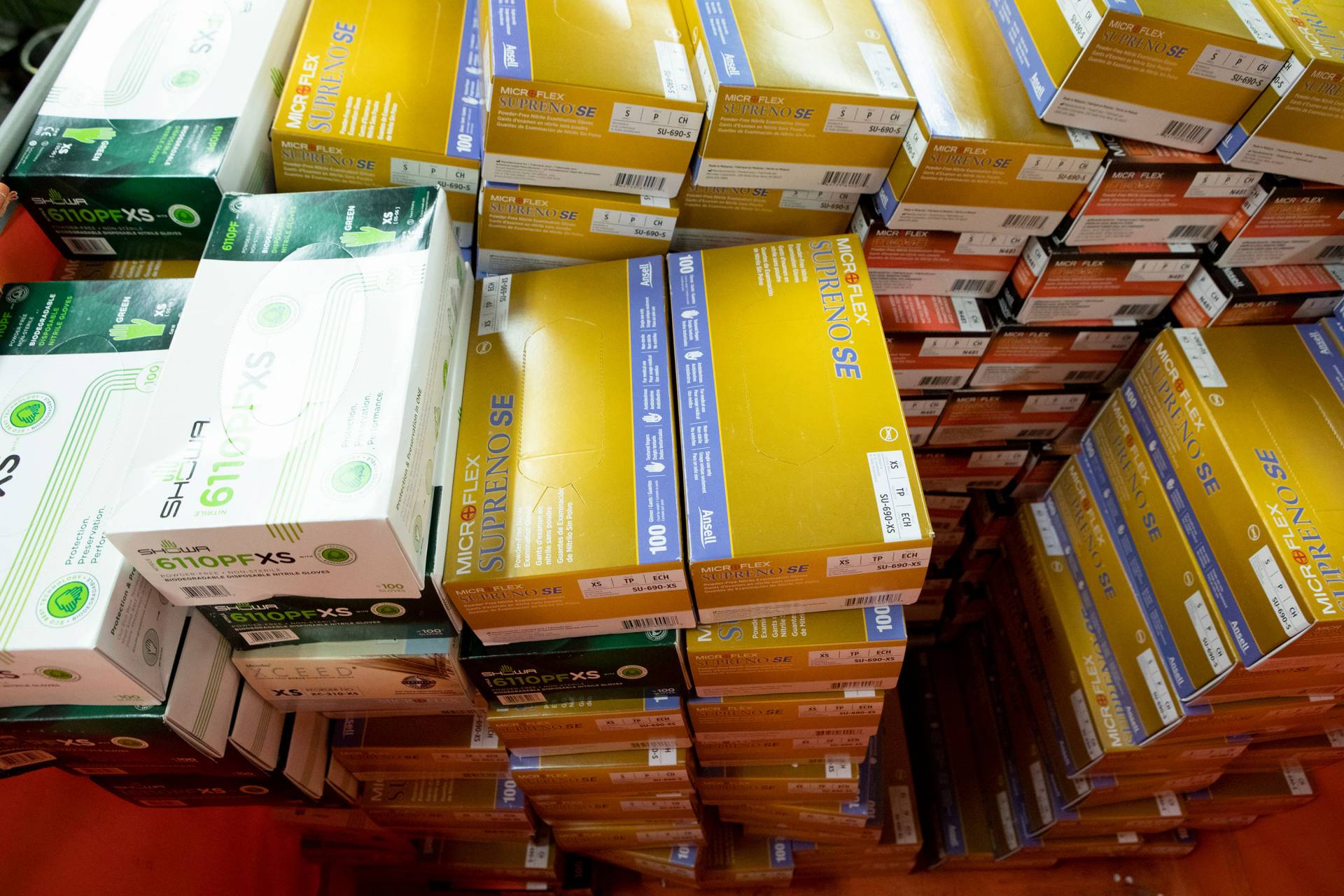
Among the personal protective equipment donated by the University were boxes of gloves collected by the Office of Environmental Health and Safety.
In addition, Campus Dining has donated a range of perishable and nonperishable food items — from liquid eggs to basmati rice and granola — to the Trenton Area Soup Kitchen, which feeds those who are hungry in the Trenton area and offers programs to encourage self-sufficiency and improve the quality of life of its patrons.
Items donated to the state Office of Emergency Management include:
- 1,500 Surgical Gowns
- 13,120 N95 Respirators
- 3,650 Surgical Masks
- 11,200 Nitrile Gloves
- 3,600 Vinyl Gloves
- 5,975 Shoe Covers
- 1,300 Hair Nets
- 300 Tyvek Hoods
- 292 Tyvek Coveralls
The Office of Emergency Management in Municipality of Princeton and West Windsor Township each received:
- 750 Surgical Gowns
- 800 Surgical Masks
- 800 Cone Masks
- 720 N95 Respirators
- 8,500 Nitrile Gloves
- 300 Vinyl Gloves
